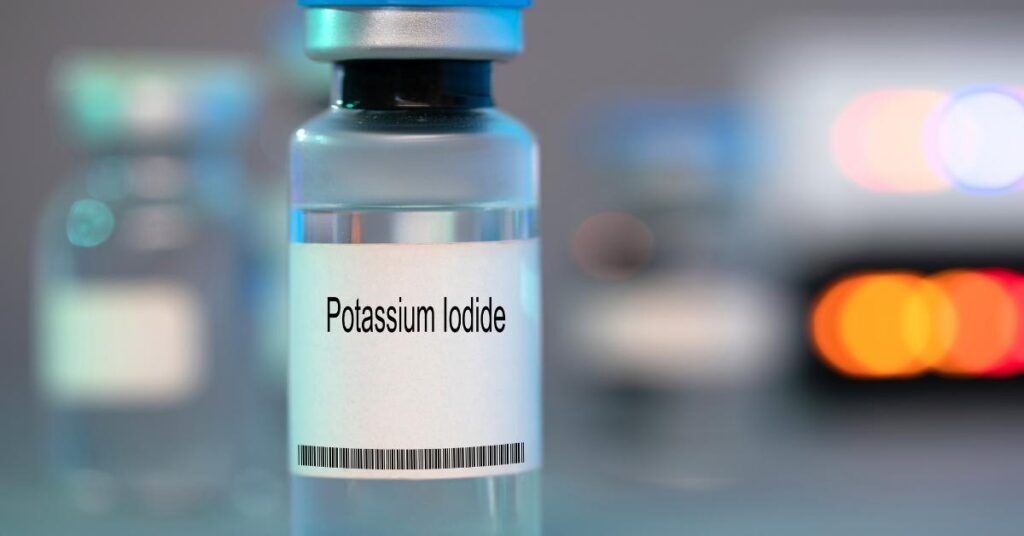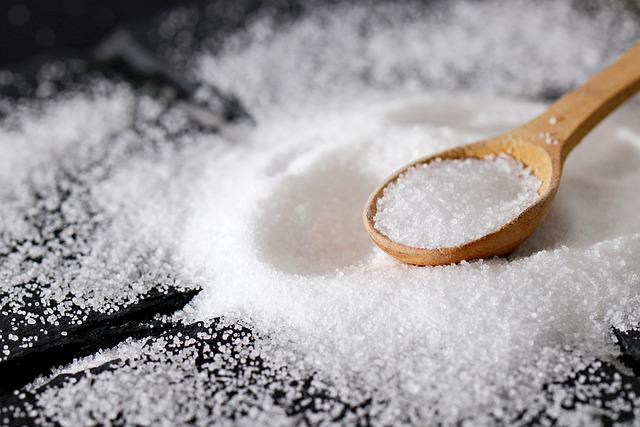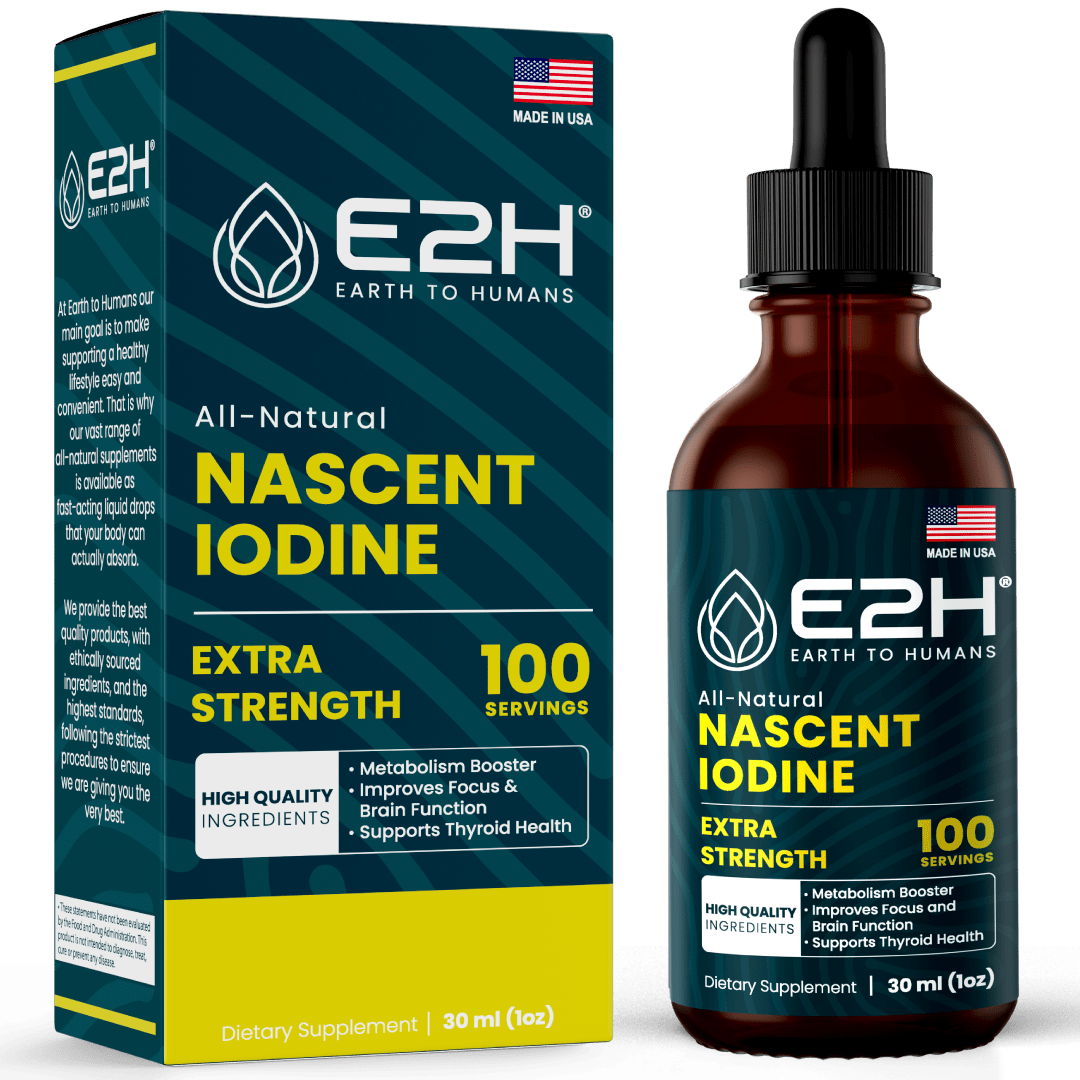Potassium iodide (KI) is often touted in nuclear or radiological emergencies as a miracle drug. It protects the thyroid gland from radiation exposure. As a result, it has been included in emergency response kits worldwide.
Despite its well-known benefits, there remains some ambiguity about the versatile uses of potassium iodide. Therefore, this article will explore everything about potassium iodide (KI). We will discuss its many uses, how it works, and potential side effects.
What does Potassium Iodide do?
Most people have heard of iodine, but only some know what potassium iodide is. This chemical compound is a salt of iodine and has many uses. It can be used as a supplement, an antiseptic, and a decontaminant. [1] Potassium iodide provides the body with iodine, an essential nutrient for proper thyroid function.

Iodine deficiency can cause problems, including goiters, mental retardation, and cretinism. KI can help to prevent these problems by ensuring that the body has sufficient iodine. KI can also help to shrink certain types of thyroid cancer. FDA says KI doesn’t protect any other body part from damage because it is not a general radioprotector. [2]
What are the uses of potassium iodide?
Potassium iodide has many uses. For example, it is an antiseptic that kills germs. Moreover, it has also made its way into photography, fireworks, and nuclear medicine.
- When used as an antiseptic, potassium iodide can help to prevent infection in minor cuts and scrapes. In addition, it treats acne and is used as a mouthwash or gargle when mixed with water.
- In photography, potassium iodide is used as a fixer. This means that it helps to preserve the image on film or paper after it has been exposed to light. Without a fixer, the image would soon fade away.
- Potassium iodide is also sometimes used in fireworks. When combined with other chemicals, it can create a brilliant white light.
- Potassium iodide is often used in nuclear medicine. This is because it may help to protect the body from radiation poisoning. When taken before radiation exposure, potassium iodide may help reduce the damage to the body’s cells.
What are the uses of potassium iodide medication?
KI’s primary use is in nuclear emergencies. World Health Organization says you should take KI at least 24 hours before radiation exposure or 2 hours after the exposure. [3]
Note: It will be useless if you take potassium iodide more than 24 hours before or more than 4 hours after the radiation exposure.

Potassium iodide (KI) is used to treat and prevent iodine deficiency. It helps treat thyroid damage. In addition, potassium iodide protects the thyroid gland from the effects of radiation exposure. This phenomenon is known as iodine thyroid blocking. In this process, it doesn’t prevent radioactive iodine from entering into the body. Rather, it prevents the thyroid gland from absorbing radiation.
Older individuals above 40 years old are at lesser risk of developing radiation-induced thyroid cancer in nuclear or radiological emergencies. [4] So they require smaller doses of KI as compared to young adults. In contrast, babies, kids, pregnant women, and adults are at an increased risk of developing thyroid cancer during nuclear exposure. Therefore, they should take the doctor’s recommended doses of KI. Potassium iodide is safe for these age groups.
Can You buy potassium iodide over the counter?
Yes, you can purchase potassium iodide over the counter at most pharmacies. Potassium iodide is taken by mouth and is available in tablet, capsule, and oral solution forms. You don’t need a prescription slip for it. Before buying potassium iodide, make sure it is FDA approved version. Check with your pharmacist to ensure they have it in stock, as sometimes is not available. [5]
Precaution: Store the KI in a dry, cool, and shady place.
When should you take potassium iodide?
It would be best to take potassium iodide only when your doctor prescribes it. If you have a medical procedure that uses radioactive iodine, your doctor may prescribe potassium iodide to help prevent the absorption of the radioactive iodine by your thyroid. To protect your thyroid from radiation, you should take KI before you are exposed to radiation.
Once you are exposed to radiation, you should take KI as soon as possible. You must take potassium iodide either 24 hours before the radiation exposure or 4 hours after it. [6] Moreover, suppose you live in an area where state and local governments have warned about a nuclear power plant accident. In that case, your doctor may recommend potassium iodide to protect your thyroid from radioactive iodine.
Ways of administering potassium iodide

There are two FDA-approved ways to take potassium iodide (KI).
- The first way is to take it as a tablet. You can buy KI tablets over the counter at most drugstores. [7]
- The second is by consuming the potassium iodide liquid supplement. According to FDA-approved criteria, KI solution comes in a 30 ml bottle, each ml containing 65 mg of potassium iodide[7].
If you take potassium iodide as a pill, you should take it with water. If you take it as a solution, you can drink it or use it as a gargle. Taking iodine in solution form offers a better absorption profile. Therefore, it is considered a much better option. If you are expecting a nursing mom, you must avoid repeatedly taking KI above the recommended dosage, as it will suppress the neural growth of the fetus. [8]
How much potassium iodide is safe per day?
The human body requires iodine for making thyroid hormones, and potassium iodide help to keep the levels of iodine in the body high. The recommended dose of potassium iodide for adults is 130 mg per day. [9]
Recommend dosage for KI tablet:
- Teenagers or adults over 70kg weight (130mg/day)
- Children under 1 month ( 16mg/day)
- Children from 1 month to 3 years (32mg/day)
- Children and Teenagers up to 18 years (65mg/day)
- Up to 20 kg (44 lbs): 65 mg
- 21-50 kg (44-110 lbs): 130 mg
- Over 50 kg (110 lbs): 195 mg
Recommend dosage for KI Solution Form:
- Teenagers and adults (250 mL three times a day)
- Children (as prescribed by the doctor)
Note: Taking liquid iodine supplements is way better than taking potassium iodine tablets, as the former provides better absorption through your gut. Therefore, I always prefer liquid iodine supplements over tablets.
There are no known side effects from taking potassium iodide at these doses. However, taking too much potassium iodide can cause stomach upset and diarrhea.
Can potassium iodide be a liquid?
Yes, potassium iodide (KI) can be a liquid. It is a white, odorless, slightly bitter-tasting substance highly soluble in water. Is it better to take potassium with food or on an empty stomach? Potassium is best taken at mealtimes because food increases its absorption from your gut into your bloodstream. However, many people who need more potassium may not be able to find foods rich in this mineral readily and must turn to supplements instead.
What is the source of potassium iodide?
The element potassium is found in nature, while iodide is usually synthesized.
- Potassium iodide can be found in minerals such as arcanite and sodium metal iodide.
- It can also be produced through the electrolysis of potassium hydroxide or potassium chloride solutions.
- You can purchase KI tablets or syrup from your local drugstore.
Natural foods containing potassium iodide include: [7] [10]
- Seafood
- Jellyfish
- Moss
- Persimmon
- Sea cucumber
- Seaweed
- Kelp
What are the side effects of taking too much potassium iodide?
Potassium iodide is generally considered to be safe for most people. However, when taken in large doses, potassium iodide can cause side effects.
Usual side effects
- Nausea
- Vomiting
- Stomach pain
- Diarrhea
- Headache
- Fever
- Skin rashes
More severe side effects such as kidney damage, heart disease, or an allergic reaction can occur but rarely. [11] If you experience these side effects after taking potassium iodide, you should stop taking the supplement and contact your doctor immediately.
Long-term use side effects
- Iodism (burning sensation in throat, metallic taste, lacrimation)
- Severe headache
- More salivation
- Salivary gland swelling
- Legs weakness
- Gums soreness
- Faster heartbeat
- Numbness in limbs
- Tiredness
Potassium iodide tablets are POSSIBLY UNSAFE when taken by mouth in large doses or for long periods. Taking large amounts of potassium iodide might decrease the ability of the thyroid gland to make hormones. This could lead to low levels of thyroid hormones, a condition called hypothyroidism. [12]
How much potassium iodide should you take if exposed to radiation?
If you are exposed to radiation, it is essential to take potassium iodide (KI) as soon as possible. KI protects the thyroid from radioactive particles that may be released into the air during a nuclear accident. The dose of KI depends on your age, weight, and exposure to radiation. [13]
Infants and children:
The recommended dose of KI for infants and children is as follows:
- 16 mg once daily for babies who are less than one month old
- 32mg for those who are one month to 3 years old
- 65mg for those who are three years to 18 years old
Adults:
- The recommended dose of KI for adults up to 40 years is 130 mg single dose daily.
Note: Elders above 40 should not take KI unless public health officials ask.
Pregnant women
- The recommended dose of KI for pregnant women is 130 mg. It should be taken one time daily.
Breastfeeding women
- The recommended dose of KI for breastfeeding women is 130 mg daily.
Can you make your potassium iodide?
Yes, you can make your potassium iodide. All you need is some iodine and a little bit of potassium hydroxide. To make potassium iodide, combine iodine with potassium hydroxide in a 1:1 ratio.
Preparing KI at home
You can make your Potassium iodide at home by adding 83 grams of KI in water and diluting the solution to 100 mL. [7] If you are interested in making potassium iodide, there are a few things to keep in mind. First, iodine is a toxic element and should be handled with care.
- The ratio of iodine to potassium is essential.
- Too much iodine can be dangerous, so use the correct ratio when making potassium iodide.
FAQs
What is potassium iodide and what can it do for your health?
Potassium iodide is a compound that contains iodine and is commonly used as a supplement. It can support thyroid health by helping to regulate thyroid hormone production and preventing iodine deficiency-related conditions such as goiter.
What are the potential benefits of taking potassium iodide?
Potassium iodide supplementation can help maintain optimal iodine levels, which are essential for proper thyroid function, metabolism regulation, and normal growth and development. It may also offer some protection against the harmful effects of radiation exposure on the thyroid gland.
How should potassium iodide be used and are there any precautions?
The usage and dosage of potassium iodide should be determined by a healthcare professional based on individual needs. It is important to follow their instructions and avoid exceeding recommended doses. Potassium iodide should not be used without medical advice, especially in individuals with certain health conditions or allergies to iodine.
The conclusion
Potassium iodide provides the human body with one of the essential minerals, iodine, that is not adequately present in the diet. Therefore, anyone experiencing symptoms of iodine deficiency should choose liquid iodine supplements as their first choice.
References
1. Tello-Barbaran J;Nakata HM;Salcedo-Moncada D;Bramante CM;Ordinola-Zapata R; The antimicrobial effect of iodine-potassium iodide after cleaning and shaping procedures in mesial root canals of mandibular molars [Internet]. Acta odontologica latinoamericana : AOL. U.S. National Library of Medicine; 2010 [cited 2022Oct8]. Available from: https://pubmed.ncbi.nlm.nih.gov/21638967/
2. Center for Drug Evaluation and Research. Frequently asked questions on potassium iodide (KI) [Internet]. U.S. Food and Drug Administration. FDA; [cited 2022Oct8]. Available from: https://www.fda.gov/drugs/bioterrorism-and-drug-preparedness/frequently-asked-questions-potassium-iodide-ki
3. Use potassium iodide for thyroid protection during nuclear or radiological emergencies [Internet]. World Health Organization. World Health Organization; [cited 2022Oct8]. Available from: https://www.who.int/news-room/questions-and-answers/item/use-of-potassium-iodide-for-thyroid-protection-during-nuclear-or-radiological-emergencies
4. F. Torti J, Correa R. Potassium iodide – statpearls – NCBI bookshelf [Internet]. NCBI-Bookshelf. 2022 [cited 2022Oct8]. Available from: https://www.ncbi.nlm.nih.gov/books/NBK542320/
5. What to know about potassium iodide for nuclear radiation emergencies [Internet]. WebMD. WebMD; [cited 2022Oct8]. Available from: https://www.webmd.com/first-aid/potassium-iodide-radiation#:~:text=You%20don’t%20need%20a,the%20version%20that%20you%20get.
6. Facts about potassium iodide (KI) [Internet]. Centers for Disease Control and Prevention. Centers for Disease Control and Prevention; 2022 [cited 2022Oct8]. Available from: https://www.cdc.gov/nceh/radiation/emergencies/ki.htm#:~:text=KI%20protects%20only%20against%20radioactive,exposure%20to%20be%20most%20effective.
7. CDC. Facts About Potassium Iodide (KI) [Internet]. Centers for Disease Control and Prevention. 2015 [cited 2022 Oct 13]. Available from: https://www.cdc.gov/nceh/radiation/emergencies/ki.htm
8. Lebsir D;Guemri J;Kereselidze D;Grison S; Benderitter M; Pech A; Cohen D; Benadjaoud MA; Lestaevel P; Souidi M; Repeated potassium iodide exposure during pregnancy impairs progeny’s brain development [Internet]. Neuroscience. U.S. National Library of Medicine; 2019 [cited 2022Oct8]. Available from: https://pubmed.ncbi.nlm.nih.gov/30797025/#:~:text=progeny’s%20brain%20development-,Repeated%20potassium%20iodide%20exposure%20during%20pregnancy%20impairs%20progeny’s,Neuroscience.
9. Potassium iodide (oral route) proper use [Internet]. Mayo Clinic. Mayo Foundation for Medical Education and Research; 2022 [cited 2022Oct8]. Available from: https://www.mayoclinic.org/drugs-supplements/potassium-iodide-oral-route/proper-use/drg-20065546?p=1
10. Foods that have potassium iodide [Internet]. Nanjing Chemical Material Corp. [cited 2022Oct8]. Available from: https://www.njchm.com/service/foods-that-have-potassium-iodide.html
11. WR; SJBH. Potassium iodide in dermatology: A 19th-century drug for the 21st Century-uses, pharmacology, adverse effects, and contraindications [Internet]. Journal of the American Academy of Dermatology. U.S. National Library of Medicine; 2000 [cited 2022Oct8]. Available from: https://pubmed.ncbi.nlm.nih.gov/11004629/
12. Lebsir D, Cantabella E, Cohen D, Sache A, Ebrahimian T, Kereselidze D, et al. Effect of repetitive potassium iodide on thyroid and cardiovascular functions in elderly rats [Internet]. Biochemistry and Biophysics Reports. Elsevier; 2020 [cited 2022Oct8]. Available from: https://www.sciencedirect.com/science/article/pii/S2405580820301266
13. Potassium iodide for radiation exposure [Internet]. InfantRisk Center. [cited 2022Oct8]. Available from: https://www.infantrisk.com/content/potassium-iodide-radiation-exposure
His research and writing have been featured in numerous publications, and he is dedicated to helping people understand the importance of these vital nutrients in maintaining optimal health. If you're looking to improve your well-being through diet and nutrition, Christopher is the expert to turn to.
- Can I Take Maca and Ashwagandha Together: YES! - January 7, 2024
- Can You Take Ashwagandha And Liquid Chlorophyll Together: YES! - January 7, 2024
- Can You Take Shilajit and Ashwagandha Together? - January 7, 2024










